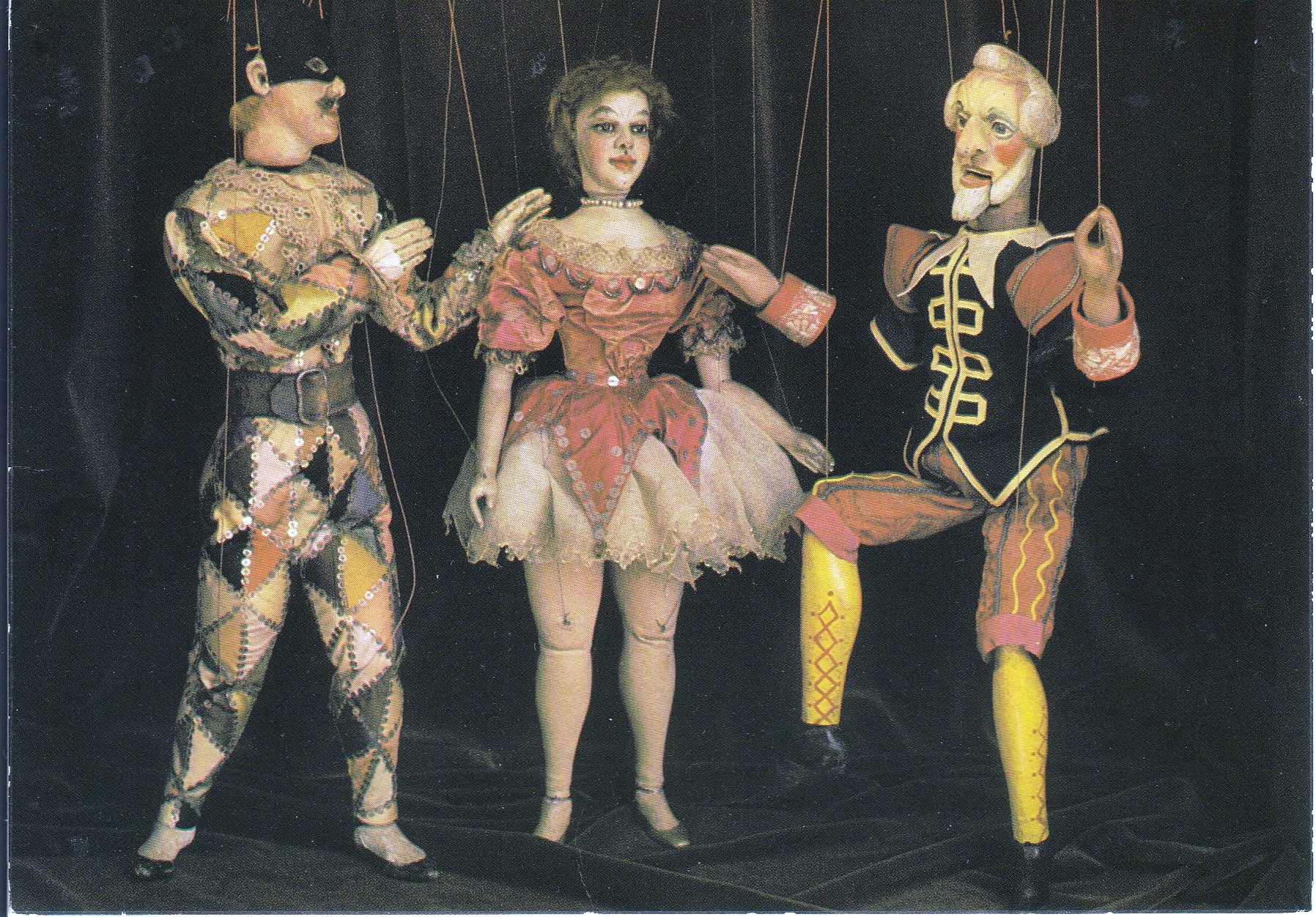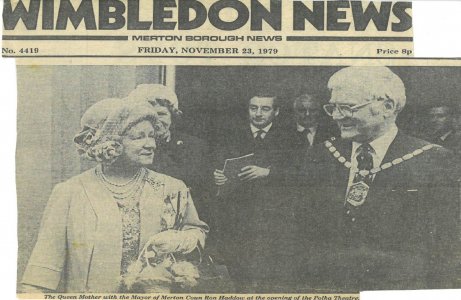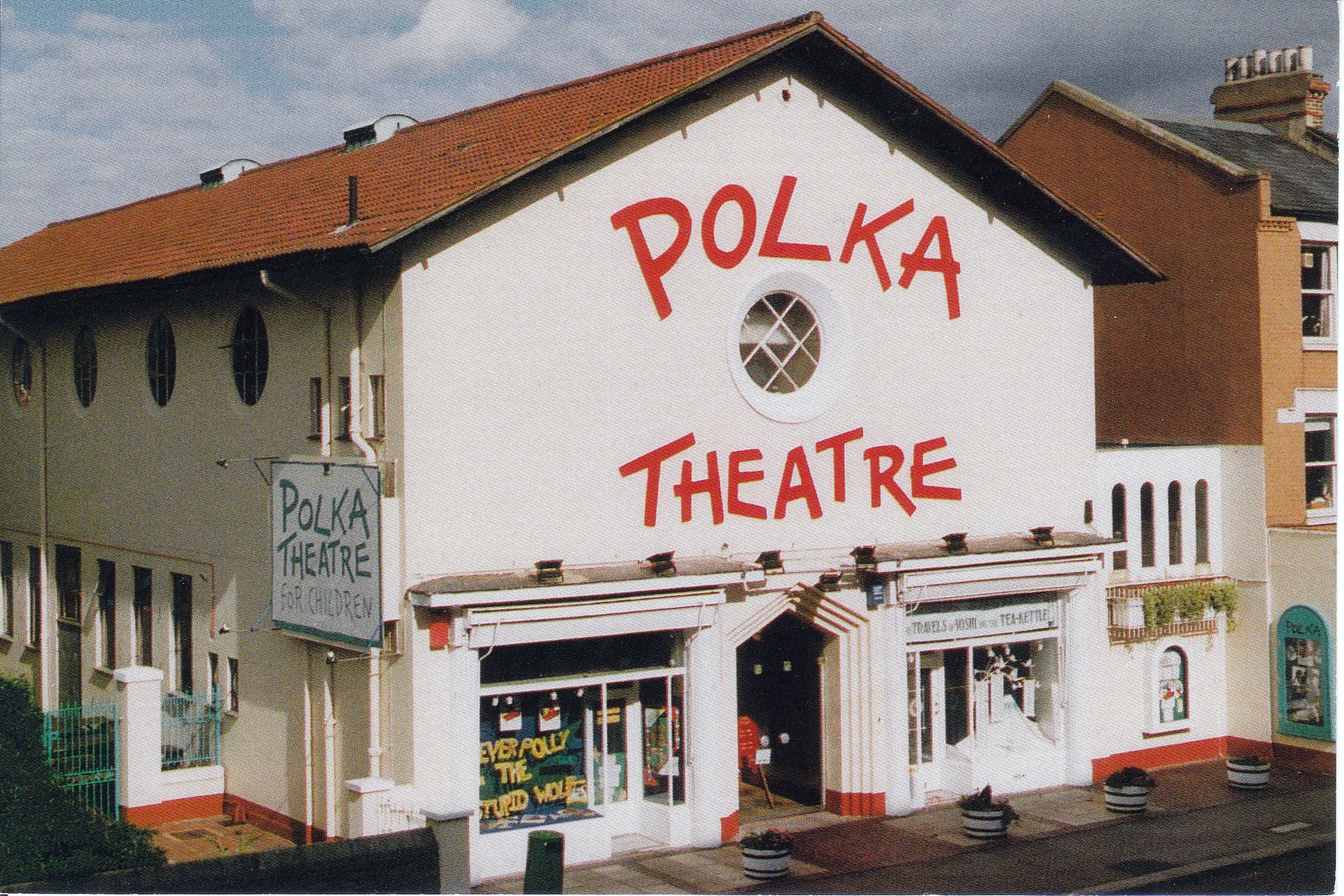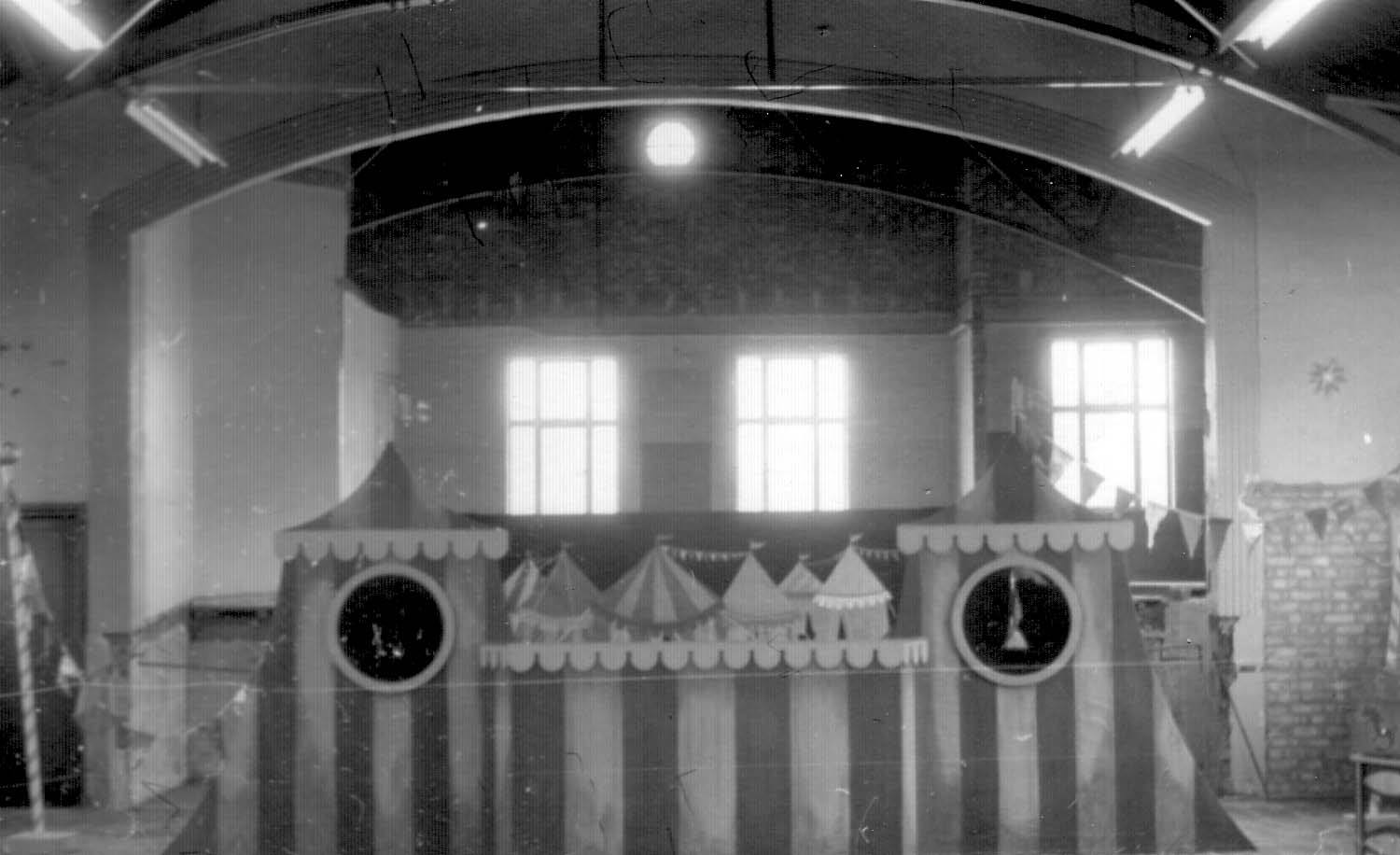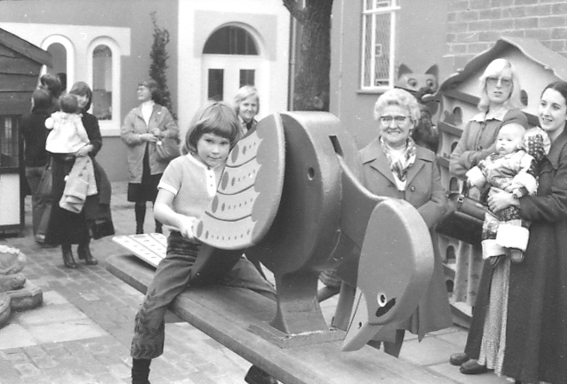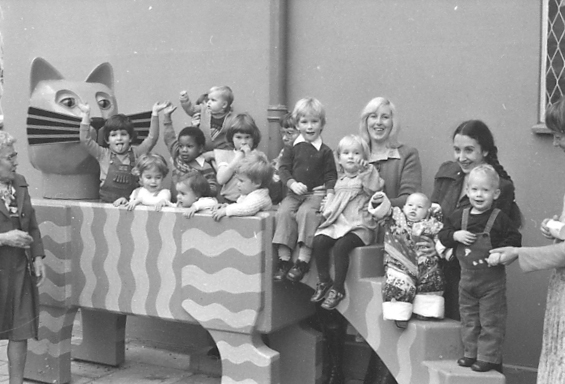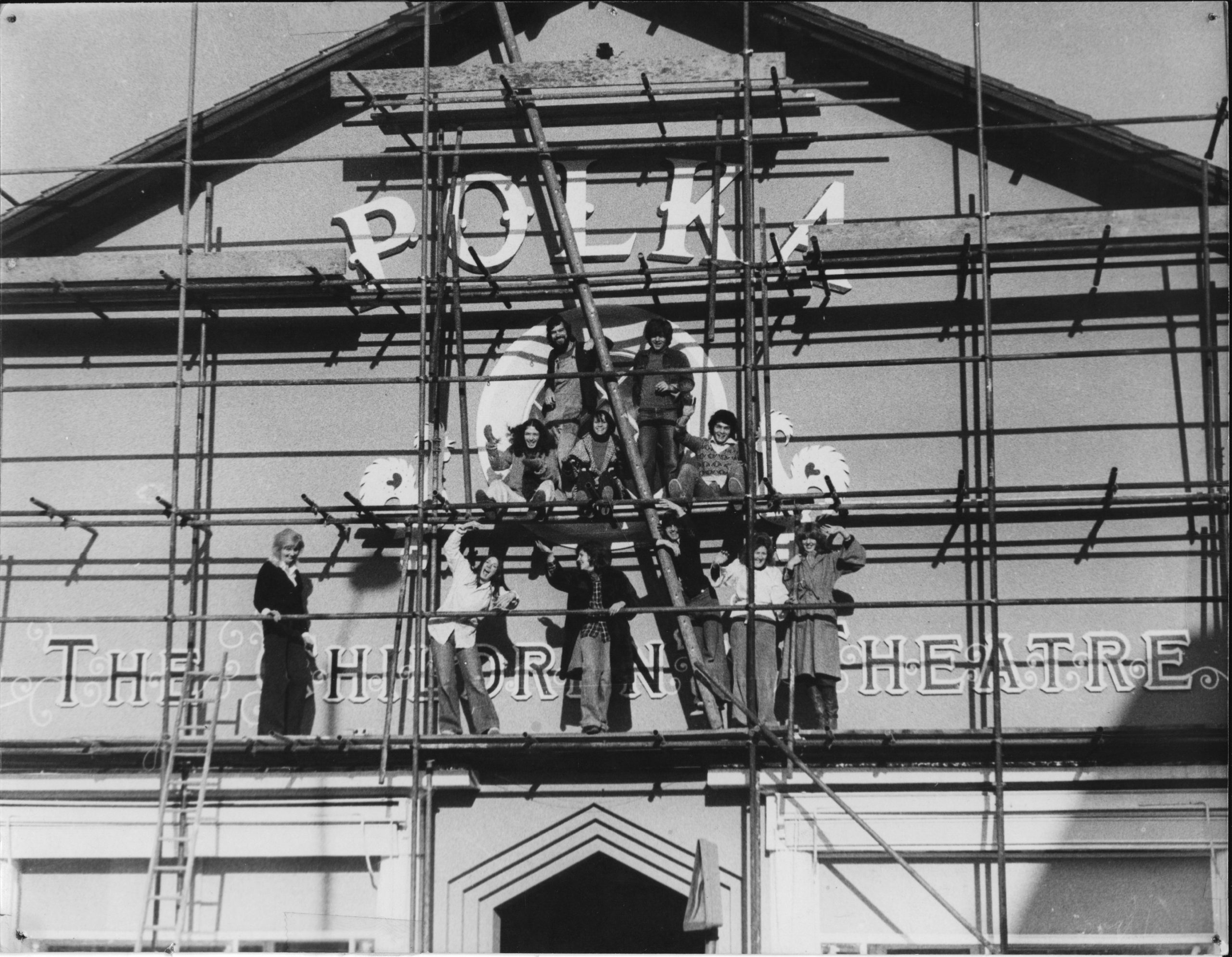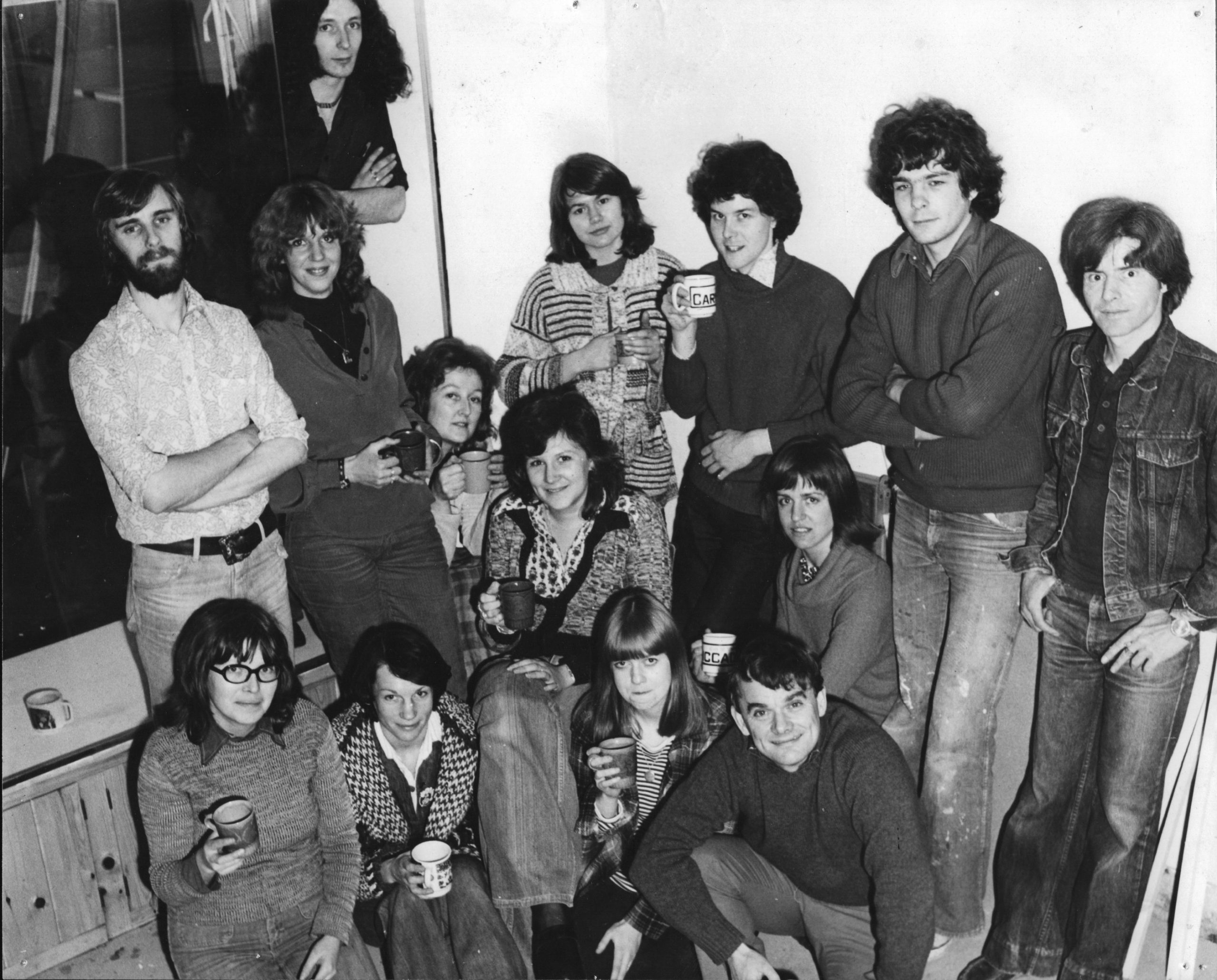Polka40
In 2019 we celebrated our 40th anniversary, and to mark this occasion we undertook a huge project to celebrate our history. On this page is a summary of the project, and our history.
I have fond memories of the playful times seeing children dressing up in the various costumes, as princess, pirate, dragon and sometimes a fun mix of various characters all at once. There is such delight on their faces and also on the faces of the parents, grandparents, carers the child is with. Polka is such a special place where the memories go beyond the show that draws people in.
Remember When project participant
“To celebrate Polka Theatre’s exciting heritage, I have designed a selection of postcards as part of the Polka40 project. Learning about the theatre’s history through my designs has been incredibly enjoyable, and I hope the designs are a fun way for children to interact with Polka’s heritage as well.”
Kathryn Martin, illustrator and Polka40 project volunteer
“This is not just one of the best pieces of theatre I’ve seen this year, but one of the best pieces I’ve seen this century”.
(about Best Behaviour) The Guardian, Lyn Gardner, 21 October 2003
“The project was amazing! The freedom that the children had to develop the stories was great, and enabled them to feel ownership over the project. Thank you for the opportunity.”
Teacher at Merton Abbey Primary School, Polka40 participating school
“It was brilliant and really allowed the kids to flourish and be more confident in themselves and their abilities.
Teacher, Malmesbury Primary School
“I want to tell you that I had a really fun time with you and I loved the performance and it was epic”
Pupil at Haslemere Primary School
“This has been a terrific initiative and in my view has enhanced the reputation of Polka.”
RE:Sound choir participant
“Polka is much more than a leading children’s theatre; it is a complete experience designed with children in mind.”
Peter Glanville, Artistic Director & Joint CEO, Polka Theatre
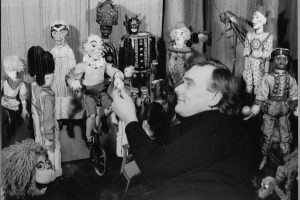
In 2019 Polka celebrated its 40th anniversary. In the same year it closed for a major redevelopment, reopening again in summer 2021. In celebration of this milestone, we launched Polka40, a programme of activities deepening our engagement with our community, children and families across the Borough of Merton during closure, and to celebrate our rich and varied past.
This recent National Lottery Heritage Fund supported project has been made possible with help from Polka staff and a wonderful team of dedicated volunteers, who have contributed to every aspect of the project’s conception and delivery.
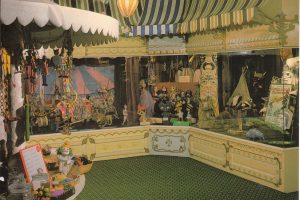
With this project we have developed and shared Polka’s archive: a history of the UK’s first dedicated children’s theatre and its significant contribution to cultural practices. This offers a valuable collection for theatre practitioners, researchers and interested public alike. Polka Theatre’s archive is a record of the history of this unique theatre and its significant contribution to children’s theatre over the last 40 years.
During 2019, and through Polka40, we also delivered a schools, community and performance project that all focused around the 40-year history of Polka and children’s theatre. This engagement programme involved 14 local primary schools and four SEND schools.
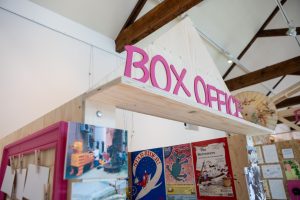
A highlight of Polka40 included a child-centric exhibition at Morden Hall Park in London which then toured to four local libraries. This exhibition offered children, parents and grandparents the chance to explore and interact with props, costumes and other gems from our archive, learning more about theatre and Polka’s rich and creative past.
Overall the exhibition hosted around 1,842 visitors at the full exhibition and 4,132 visitors during the library tour that ran from August 2019 – March 2020: A huge 5,974 visitors in total!
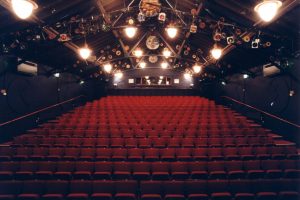
The project also delivered a permanent exhibition in Polka’s new building, a digital exhibition of Polka40 archive materials/living history and oral histories on Polka’s website. Four intergenerational community choirs were established to celebrate Polka’s 40th birthday and Re:Sound continues today as one joint Polka choir.
During the project Polka worked with 30+ volunteers, an Archive Researcher, Heritage Project Manager and project partners to gain skills and ensure our heritage (Polka memories, objects and stories) is better looked after, managed, understood and shared into the future.
‘For a few Christmases in the mid-late 80s we presented annual carol concerts, for charity. It was a great time for any company members as inclined to come together. Under Roman’s guidance we’d compile favourite carols, poems and readings, adding in some of those classic Christmas songs. We’d have a handful of rehearsals – a lovely way to come together at the end of a day. And of course, there was always some mulled wine involved as part of the final celebration.’
Jo Belloli, former Associate Director – Early Years
‘I loved taking my granddaughter Scarlett to the Polka Theatre. We started when she was young and sat on the floor or on my lap in the downstairs space and moved up as she got older. She loved the magic of it – not just the shows, but the costumes and books and toys on the ground floor. Her school started taking her class to Polka, but I miss watching her face absorbed by live shows.’
Steffi Callan, Polka40 project volunteer
‘I have many fond memories of going to the Polka Theatre when I was a child in the 1980s. To live near enough for it to be a regular activity was wonderful. Now I’m a parent I’m pleased to be able to take my son there too. My fondest memory is of Elementary, Mr Holmes, which I went to see for a friend’s birthday in 1991. I remember it being absolutely spectacular’.
Remember When project participant
‘What I’ve always loved about the Polka Theatre, since the moment I first walked in, is the atmosphere of delight that I found there. The cases of fabulous puppets in the foyer; all that love and knowledge of theatre history and make believe. It’s incomparable and irreplaceable and more or less inimitable. And the Polka’s commitment to new writing for children, to giving young audiences the very best of what theatre can do, is what makes it so outstandingly valuable. Children don’t need cut –down versions, simplified versions, low calorie versions, of the sort of thing grown-ups like. They don’t need that kind of treatment. They deserve better than that. They need better than that.’
Philip Pullman, 2018
Click below to hear the stories of Polka people, past and present.
Polka Archive
Polka’s archive is housed at the University of Worcester, where it comprises over 4,000 photographs, 200 scripts and prompts, 350 posters and flyers, 150 programmes, recordings of performances, minutes of company meetings, artistic notes, correspondence, building plans, set designs, sketches and press cuttings.
The archive also includes fascinating props, costumes, and puppets from leading and pioneering puppeteers of the last four decades. It contains original work from many quarters and provides an insight into the company’s responses to cultural, social, economic and political changes over five decades.
There are materials/scripts linking to Polka’s local heritage such as: Rosie Blitz – 1988 and 1995 (exploring the evacuation of local children and the effects of the Blitz on the immediate locale); Indigo Mill – 1992 (focusing on the William Morris works at Merton Abbey); Sticks and Stones – 2012 (a verbatim project that explored local children’s responses to the London riots of 2011); and The Box of Photographs – 2017 (the script created during a Polka literacy project).
Some of the fascinating items in the store include:
- Brochures from Polka’s very first season (1979/80)
- Nametags and ration books from Rosie Blitz (1988), a production starring a very young Keeley Hawes, now a well-known actress
- The theatre’s accident books (providing evidence of the many dangers of working in live theatre!)
- Show reports, detailing the progress of a single production over its entire run, a fascinating insight into the life of the theatre’s cast and crew
- Invitations to Winnie the Pooh’s 60th birthday party (in 1986)
